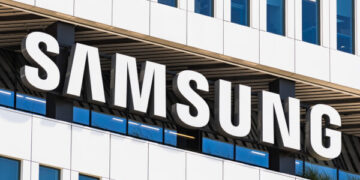
IPO investors in India have committed Rs.5.41 lakh crore to the 10 IPOs launched in November this year. Given that the bank traces the IPO application amount in ASBA (application supported by blocked amount), this was the actual money that was put up, not just a paper number. Of course, most of it came back, but it was real money. You could say that the money committed earlier during the month to IPOs, such as Cello and Honasa, would have become available again for Tata Tech, and others, later. This is likely, but even if you count only the IPOs that launched simultaneously on 23 and 24 November—IREDA, Tata Tech, Gandhar Oil, Fedbank Financial and Flair—the application amount added up to Rs.3.6 lakh crore.
In contrast, the average monthly SIP inflow for six months till October 2023 was Rs.15,585 crore. So, the amount committed to the last five IPOs alone was worth nearly two years of SIP inflows. This is impressive, but not in a good way. The SIP culture in India has come a long way since 2016-17, when the monthly inflow was in the range of Rs.3,000 crore. However, the vast gulf between SIP investments and the IPO inflow shows that the typical equity investor has a deeper interest in quick punts and speculation rather than steady, but predictable, wealth building. Recently, there have been several social media memes that refer to the IPO frenzy as ‘khelo India khelo’. You may or may not find these funny, but they certainly capture the investors’ mood.
The reality is that while IPOs may offer a chance for quick gains, which is all that a vast majority of punters invest for, these also come with substantial risk. On the other hand, SIPs in quality mutual funds have a strong track record of generating steady, long-term returns, with much less volatility. The data suggests that many Indian investors are yet to fully appreciate the power of disciplined investing over gambling in the next hot IPO.
As we all know, IPOs come in waves. When a few IPOs succeed, more promoters start trying their luck. The process always results in rapidly declining quality, and ends in investors putting in a higher proportion of their money in stocks that sink on listing. Retail investors should avoid IPOs altogether, even though the underlying business appears to be strong. The key rationale for any stock investment should be the company’s financial track record and prospects; the fact that it is an IPO should be irrelevant to this core analysis. However, the IPO process itself stacks the odds against the average investor.
Unlike listed stocks, IPOs present a high information asymmetry between the seller (company and promoters), and buyers. For years, IPOs have been pitched to retail investors in India as being advantageous to them. However, the reality is that IPOs sharply favour the sellers, rather than public participants. The regulators may try to level the playing field, but retail buyers still operate at an inherent disadvantage.
This is because IPO companies have no public track records to scrutinise. The promoter spends months polishing the firm’s image ahead of the offering, spinning a rosy story. The hastily compiled recent financials receive far from the public scrutiny of years of filings by listed firms. The promoters set the offer price to maximise their haul, which is not discovered through the ruthless daily market consensus on valuations.IPOs represent something of an insider’s game. Retail investors walk on to the playing field not knowing the rules or other player, making losing bets almost inevitable. Your best odds come from sticking to listed stocks with established track records. The next hot IPO is rarely the right place for your money.
The Author is CEO, VALUE RESEARCH
Source Link













